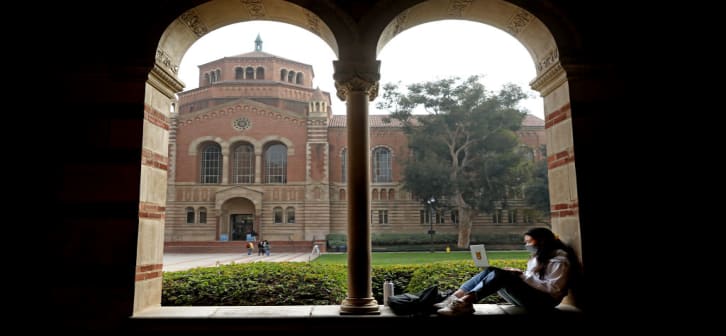University of California to Waive Tuition for Native Americans
Writer
Editor
Writer
Editor

- Native American students could save over $10,000 per year thanks to the initiative.
- The program only applies to California residents.
- Most UC students already avoid paying tuition thanks to generous financial aid awards.
Some of California's top public universities will soon offer tuition- and fee-free education to students from Native American tribes.
The University of California (UC) system, which includes 10 universities throughout the state, will begin implementing the Native American Opportunity Plan in the fall semester. The system's president wrote in a letter to chancellors that the program will advance UC's efforts to expand student diversity and make its schools more affordable for the Native American population.
"The University of California is committed to recognizing and acknowledging historical wrongs endured by Native Americans," UC President Michael Drake wrote. "I am proud of the efforts the university has made to support the Native American community ... and appreciate our conversations to date on all the ways in which we can better support Native American students."
The Native American Opportunity Plan applies only to California residents who are enrolled in federally recognized Native American, American Indian, and Alaska Native tribes.
It applies to undergraduate and graduate students.
— Michael Drake, UC President
According to UC's admissions office, the program will use grants and scholarships to pay tuition and student services fees. It will not, however, cover campus fees and professional degree supplemental tuition.
Students don't need to apply to be included in the program, the admissions office said. Instead, the school will reach out directly to new and enrolled students it thinks would qualify. Any student who suspects they should qualify but doesn't hear from the university should reach out to their Native American student resource or community center or campus financial aid office.
Students need one of the following documents to show they qualify:
- Certification of tribal enrollment on tribal letterhead
- Enrollment/membership card that contains the tribal seal and/or official signature of a tribal leader
- Certificate of Degree of Indian Blood (CDIB) if the CDIB includes tribal enrollment information
- Tribal identification card with an enrollment number
The plan is estimated to cost $2.4 million for the 2022-23 academic year. It will be funded through a combination of existing and new financial aid funds.
The average cost of in-state undergraduate tuition and student fees at a UC system school is $14,500 per year, according to the system. However, thanks to financial aid programs similar to the Native American Opportunity Plan, only about 44% of students pay any tuition at all.
The UC system enrolled about 226,000 students in the fall 2020 semester, making it the smallest of the three statewide systems in California. The California State University system and California Community Colleges system, which each enroll more total students, do not seem to have similar tuition-free programs for Native American students.
















